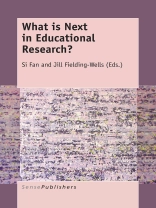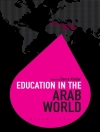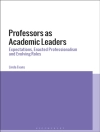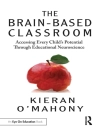What is Next in Educational Research? enables the reader to peek into research at the forefront of a diverse range of education fields as it is being conducted by beginning researchers. The book illustrates the extensive range of research being undertaken in education through a broad range of issues, topics and methodologies that will underpin and provoke research well into the future. The five sections address a range of topics, including: issues in design and methodology, social integration, language education, leadership, and issues in contemporary education. Each chapter makes a valuable contribution to existing educational research, and is a testament to the potential of these researchers to lead innovative educational research projects. Both higher degree by research students and their supervisors will find this book particularly useful and interesting as it provides examples of quality research higher degree writing, illustrates a variety of contemporary methodologies, andsupports the early publication of student work.
Jadual kandungan
Foreword.- Preface.- Acknowledgements.- Section 1: Issues in Educational Research Design and Methodology.- Turning Good Ideas into Quality Research.- Musings Yesterday and Knowledge Tomorrow: Beyond Reflexive Accounts of Research Encounters.- A Reflective Model for Action Research: An Evolving Pedagogical Trajectory.- Linking Research and Practice: Educational Design Research.- The Challenges of Undertaking Citizenship Education Research in Pakistan.- Using Stories to Investigate, Reflect on and Raise Social Consciousness in a Sporting Culture.- Scaling the Tower of Babel: A Researcher’s Journey into the Risks and Rewards of Multilingual Research.- Section 2: Social Integration and Education: Non-Traditional Students.- Constructing an Identity: A Key to Learning.- Early French Immersion in British Columbia: A Consideration of the ‘Struggling Learner’.- The Experiences and Perceptions of Non-Traditional Students Enrolled in an Online Teacher Education Course.- Confronting Educational Disadvantage by Improving Tasmanian Adolescents’ Participation in Education.- Refugee Settlement in Australia and the Challenges for Integration.- Section 3: Researching Language Education.- Language Education: Policy and Practice.- Issues in English Language Teaching in Nepal.- Mind Your Language: Exploring Students’ Motivations Concerning Elective Second Language Learning.- Measurement of Vocabulary Knowledge: Problems and Solutions.- Section 4: Leadership: Implementing Educational Programs.- Manifestations of Leadership in Diverse Educational Settings.- Leading the Quality of Teaching within Schools.- Strengths-Based Teaching and Learning Approaches for Children: A New Zealand Case Study.- A Framework to Explore Common Incidents in Secondary Schools Guided by Content Analysis.- The Establishment of a Framework of Communicative Competence of Seafarers: A Systematic Review.- A Framework of Conditions Supporting Early Career Teacher Resilience and Creativity.- Professional Learning and Development for Pedagogical Leadership in Family Day Care in Tasmania.- Section 5: Issues in Contemporary Education.- What Is the Purpose of Education?.- Putting on the Style: Enhancing Citizenship Education with a Persuasive Writing Framework.- Fiji Primary School Teachers’ Perceptions of Classroom-Based Assessment.- The Role of Animals in the Values Development of Children.- Arts for Sustainability: Teachers’ Perspectives of Intersections between Education for Sustainability and Arts Learning.- Research Writing: A Systemic Functional Linguistics Perspective.- About the Contributors.- External Reviewers.












